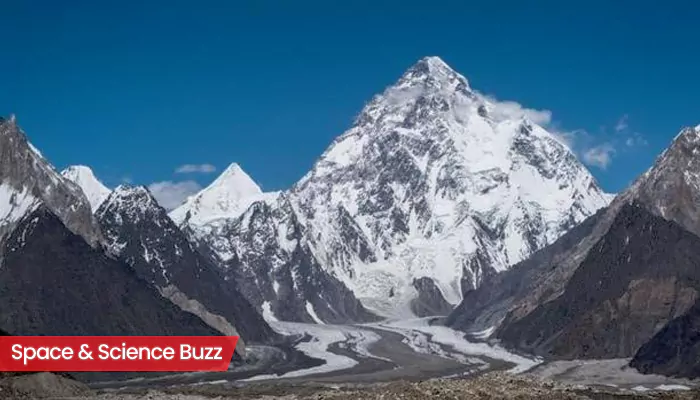
Here are today’s most important updates from the realm of Science and Space.
While global warming is shrinking world's ice cover, three glaciers in one of the remotest regions of the world are gaining ice. An astronaut captured them from the International Space Station (ISS), merging into one massive ice mass in the Karakoram mountain range. The Lolofond glacier, the Teram Shehr glacier, and the Siachen glacier are the three glaciers seen merging in the photo and together create the Karakoram anomaly. These glaciers are growing bigger, even though the rising temperatures in the world are threatening glaciers in Antarctica and the Arctic. Scientists have been baffled by the phenomenon for years and have racked their brains, trying to figure out what's going on with them. This could be because of the Western Disturbances that bring snowfall in winter, according to a study. However, a sureshot answer remains elusive

Researchers from the Indian Institute of Science (IISc) in association with Qatar Science and Technology Research Center (QSRTC) have unveiled an innovative, fully automated approach for detecting and quantifying corrosion in industrial equipment, harnessing advanced machine learning and image analysis. Their method promises significant progress in monitoring and mitigating corrosion, a costly and dangerous problem for industries from power generation to oil and gas. The new AI-powered algorithm analyses high-resolution microscope images of metal surfaces to assess two crucial indicators of corrosion: the thickness of corrosive deposits and the porosity (tiny holes) within them. By quantifying these features, the algorithm infers changes in the chemical environment such as increasing chloride content and acidity that signal worsening corrosion.

You don’t need to chase 10,000 steps a day to stay healthy; 7,000 may be enough, suggests a new global study published in The Lancet Public Health. Here’s how 7,000 steps a day stacks up against lower activity levels:
47% lower risk of death from any cause
25% reduced risk of heart disease
38% lower risk of dementia
14% drop in type 2 diabetes
6% reduced risk of cancer
22% lower risk of depression
28% fewer falls
With rising lifestyle diseases and urban sedentary habits, India is witnessing an alarming increase in non-communicable diseases, including heart issues and diabetes, even in younger age groups. The overall message is clear: move more, and aim for at least 7,000 steps a day.

Flossing may be good for more than getting your dentist off your back—one day, it may also protect you from the flu. In an unorthodox approach to needle-free vaccines, researchers have developed a special kind of floss that can deliver proteins and inactive viruses to gumlines and trigger immune responses that protect against infectious disease. Currently under pre-clinical trial, the researchers coated floss with a fluorescently labeled protein, 75% of the protein was successfully delivered to the mouse’s gums. And even 2 months after flossing, the mice had elevated levels of antibodies in their lungs, noses, feces, and spleens, suggesting a robust immune response to the protein. The immune response to the floss resembled the response to vaccines that are sprayed into the nose, such as FluMist.